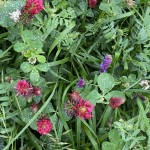Greg Hart Looks ahead to 2030
The sun sets on another beautiful autumn day at Mangarara – The Family Farm, near the thriving community of Elsthorpe in Hawke’s Bay. It’s early April 2030 and I am reflecting on the last decade since the Covid-19 virus changed the world for good.
Added 5 years ago
The sun sets on another beautiful autumn day at Mangarara – The Family Farm, near the thriving community of Elsthorpe in Hawke’s Bay.
It’s early April 2030 and I am reflecting on the last decade since the Covid-19 virus changed the world for good.
Feelings of massive gratitude flood my thoughts as I appreciate how fortunate I am to live in New Zealand, the country that has lead the world on a new regenerative path over this past decade. Every environmental, social and economic measurement is now showing improvement.
We can’t ignore the dark times of the mid 2020s. In many countries there has been tragic loss of life and social upheaval as globalisation unravelled and economies crashed, breaking the long supply chains that were unseen … until they weren’t there anymore.
Until this time we were oblivious of the role oil played in every part of our lives. Global tensions escalated as it became obvious that despite efforts to pump more oil from the earth, we were on the irreversible slide down the peak oil curve. With the benefit of hindsight we could see that oil production peaked in 2018. Fortunately, mass public rallies all around the world calling for peace prevented a disastrous world war.
Life has got a lot simpler. After the practice run we got from being isolated in our ‘bubbles’ for eight weeks back in 2020, many of us appreciated the slower pace of life and more quality time with our family. The lockdown bought communities together where we supported those who were struggling and shared what we had. Life simplified, but our connection to each other and the earth deepened and we felt much richer for it.
Changing the system
The ‘infinite growth’ economic model that required ever more consumption of finite resources was always destined to fail.
At Mangarara, we had been planning for a different future for a number of years; however, the Covid-19 virus acted as the catalyst that catapulted us into action.
Changing our farm debt from the interest-sucking Australian banks that took over $1,000 for every man, woman and child in New Zealand through the 20-teens was the first change we made.
Parents who had financed us into the farm remained our main backers, but we created a Limited Partnership which enabled a group of passionate change-makers to join The Family Farm team and invest in a better future. We developed the farm to become a model of Regenerative Agriculture and created a thriving ‘Agrihood’ with a diverse range of land based enterprises, which has enabled other families to live and generate their livelihoods off the once-traditional sheep and beef farm.
While the farm has remained profitable financially, this group understands that wealth is much more then dollars and cents. Financial profits are distributed to shareholders after ensuring the environment and the community around the farm are taken care of.
The widespread shift to Regenerative Agriculture since 2020 has been revolutionary. People began to understand that action on Climate Change was urgent. And the science community verified that sequestering carbon from the atmosphere back into the soil was our best hope to mitigate its worst effects. After years of being vilified New Zealand farmers rose to the challenge and became the heroes once more.
The old way of farming was no longer possible as supply chains broke down, with fertilizer and other chemicals from the other side of the planet no longer available. With the use of diverse pastures, wise crop rotation and inputs sourced locally to stimulate the soil microbes that maintain the health of the soil and plants, farms maintained their production while increasing their profitability.
Shortening the supply chain of farm inputs and becoming largely self-sufficient through effectively recycling nutrients has made the farm much more resilient to climate and market shocks that still occur.
Resilience has been built into the system by building carbon levels in the soil so it holds more water and acts like a sponge, allowing pastures to absorb more water faster during heavy rainfall events and to continue growing for longer in the dry Hawke’s Bay summers.
Now, in 2030, Mangarara sequesters four times more carbon than it emits (455% to be more precise). Our total farm emissions are 1,445 tonnes CO2e per year. However, we offset those emissions each year through our pasture management practices and our trees. Our soil alone sequesters 1,725 tonnes CO2e.
And this is augmented by our strategic planting of trees. Mangarara has been regenerating native forest both original and planted with community support, complemented by areas of exotic forestry planted before the ‘Great Reset’ of 2020. Since that time we have planted 400ha of the 470ha effective grazing area in a diverse mix of trees, creating a silvopasture that is sequestering approximately 4,000 tonnes CO2e per year. And our exotic forestry accounts for another 861 tonnes CO2e.
Our trees are providing shade and shelter for the animals that graze contentedly amongst them. The trees are cycling nutrients from deep in the soil profile, further reducing the need for fertiliser to be applied. They are reducing erosion while also providing the animals with a diverse diet, allowing them to self-medicate and resulting in excellent animal health. Trees create habitat for birds and insects and when combined with Holistic Grazing Management that has taller pastures with longer rest periods between grazing, the diverse insect populations increase and the whole eco-system really comes to life.
Building the ‘Agrihood’ Community
Like the family of shareholders who came on board to support the regenerative vision for the farm there is a large community of ‘careholders’ who have been supporting the farm by buying Mangarara farm produce from butcher shops in Hawke’s Bay and Auckland.
Over the years most of those people have visited the farm, either on one of our many farm open days or staying at our Eco Lodge. They understand the intimate connection between the health of the soil and environment and the nutrition of the food and ultimately the health of their family and society. This connection to the farm and the friendships built is one of the most rewarding outcomes of my farming career.
Like most other farms in Hawke’s Bay our surplus production is exported to the most discerning markets in the world, where a big premium is paid for the certified Regenerative farming system that it was grown in. As these techniques have been widely adopted throughout the country over the 2020s, New Zealand has become the first country in the world to be carbon positive, sequestering more than we emit.
New Zealand is a beacon of hope, showing that global warming can still be kept below the critical 1.5C level. Moreover, our rivers run clean again and the mental health of farmers is positive after going through a tough transition period.
In the distance I can hear the sound of children laughing as a family holidays at the Mangarara Eco Lodge. Families return year after year, so now 15 years after the lodge was opened young adults who came here in the early years are now returning with children of their own. They refer to Mangarara as ‘their farm’, which is what we wanted from the start. We were always only kaitiaki or guardians of this land for our brief time on earth.
Further out on the farm, the 20 hectares that was developed in the early 2020’s as an Agrihood is now providing community and meaningful lives for another 10 families. This group of pioneers came from a range of backgrounds with a diverse set of skills and experiences. The one thing they all had in common was the understanding of the need to live more lightly on the earth and the opportunity to play an active role in healing the earth and society. Their eco-friendly homes were built from macrocarpa milled on the farm and other local materials. And they are off-grid, powered by a network of renewable energy.
Unfortunately, many people in the western world were not prepared for empty supermarket shelves during the food crisis that began in 2022. Many went hungry and the fragility of the ‘just in time’ supermarket model was exposed. This resulted in many people shifting to the country where they could at least share the responsibility of feeding their families. The Agrihood at Mangarara is largely self-sufficient in food and also supplies a cooperative store at Elsthorpe and local farmers markets in the weekends.
The Agrihood has become a model that has been replicated and adapted to many farms all around New Zealand.
Various families have developed enterprises including producing dairy products from the small dairy, poultry and eggs production from free range chickens integrated into the sheep and beef farm. A wide variety of vegetables are produced which are also available to lodge guests, where many enjoy a fully catered farm-grown meal. There are people employed on the farm in administration, marketing, and IT roles.
Beauty is the basis of all we do, exemplified by the craftsmen living in ‘the hood’ milling timber and creating beautiful furniture from trees grown on the farm. When advertising for people to come and live at Mangarara we realised the opportunities to develop new businesses were limited only by our imagination. We are delighted to now have the Permaculture Education Centre, which includes a food forest, tree nursery, vegetable gardens, as well as an education and accommodation space.
As the daylight fades and the stars begin to appear in the clear sky, a sense of contentment comes over me. I reflect on my 63 year journey through life and the massive leap in consciousness humanity has made over the last 10 years.
Yes we can have peace and beauty on a healthy planet, but it all starts by finding that peace, beauty and abundance that is inside each and every one of us.
Greg Hart
Join the conversation
Be the first to leave a comment.
Leave a comment
All comments are reviewed before they are published on the website. Your email address will not be published.




Family-Owned Farm Embraces Regenerative Agriculture to Grow and Educate


